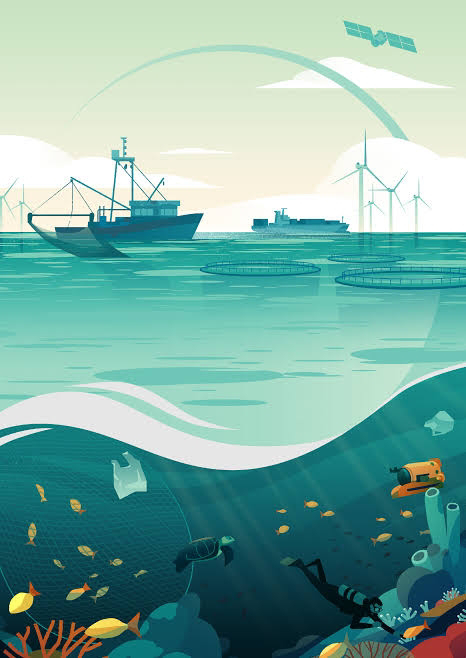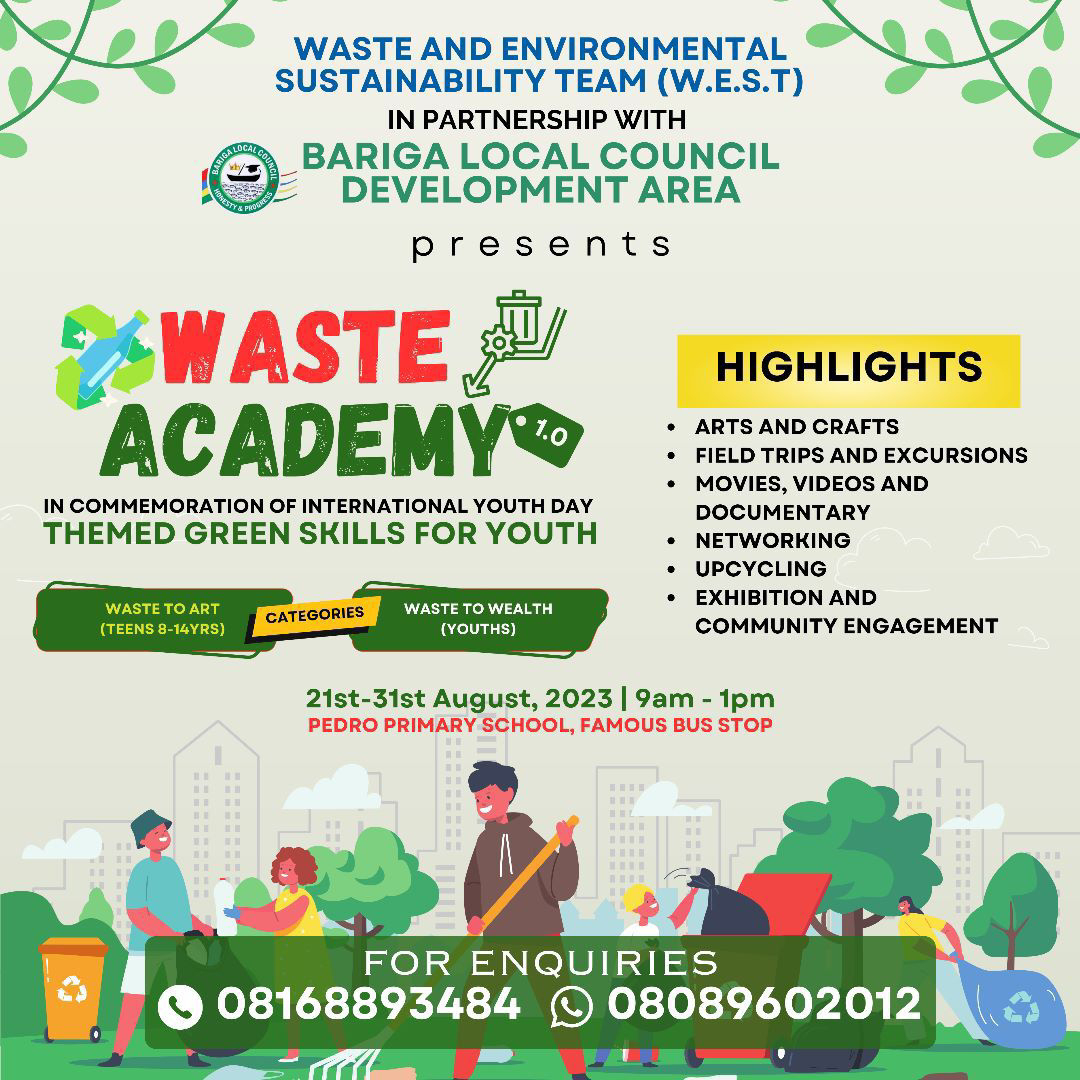UNLEASHING NIGERIA'S POTENTIAL: THE BLUE ECONOMY AS A CATALYST FOR SUSTAINABLE DEVELOPMENT
Abdulquadir Iyanda Jimoh
Nigeria, often referred to as the "Giant of Africa," boasts a vast coastline stretching 853 kilometers along the Atlantic Ocean. This unique geographical advantage positions the nation to tap into the immense potential of the blue economy. The blue economy, encompassing all economic activities related to oceans, seas, and marine resources, has gained significant global attention as a viable solution to achieving sustainable development goals (SDGs) by 2030. In this piece, we shall delve into why Nigeria needs to embrace the blue economy and leverage its potential to drive profound socio-economic development while preserving our marine ecosystems.
• Abundance of Marine Resources:
Nigeria's coastline is blessed with diverse marine ecosystems, teeming with a wealth of resources including seafood, hydrocarbons, minerals, and energy sources. Harnessing these resources sustainably through the blue economy approach can significantly contribute to poverty reduction, food security, and revenue generation while ensuring the preservation of our precious marine environment.
• Employment Generation:
The blue economy has an incredible potential to create jobs across a wide range of sectors. Fisheries, aquaculture, maritime transport, tourism, offshore oil and gas, and renewable energy industries present countless employment opportunities for the Nigerian youth. By investing in the blue economy, Nigeria can address the challenge of unemployment and stimulate economic growth, particularly in coastal communities where livelihoods heavily rely on marine resources.
• Sustainable Fisheries and Food Security:
With a population estimated to surpass 400 million by 2050, ensuring food security in Nigeria is imperative. The blue economy offers a unique opportunity to develop sustainable fisheries and aquaculture practices, reducing reliance on imported seafood and empowering local fishing communities. By adopting responsible fishing practices, implementing effective resource management, and promoting sustainable aquaculture, Nigeria can secure food supply, improve nutrition, and alleviate poverty.
• Renewable Energy Sources:
As the world continues its transition towards renewable energy sources, Nigeria's blue economy possesses immense potential in this regard. Exploiting offshore wind power, wave energy, and marine currents can provide a sustainable alternative to traditional energy sources. By developing a robust renewable energy sector, Nigeria can reduce its carbon footprint, minimize dependency on fossil fuels, and contribute to the global fight against climate change.
• Ecotourism and Conservation:
Nigeria's coastline is home to breathtaking marine biodiversity, including coral reefs, mangroves, and marine protected areas. By promoting sustainable marine-focused tourism, Nigeria can attract visitors from around the world, creating jobs, boosting local economies, and raising conservation awareness. Properly managing these fragile ecosystems through responsible tourism practices will contribute to preserving our natural heritage for future generations.
Nonetheless, As Nigeria strives to achieve the SDGs by 2030 and secure a sustainable future, it is crucial to recognize the immense potential of the blue economy. By harnessing our marine resources responsibly, Nigeria can unlock unprecedented opportunities, ranging from job creation and poverty reduction to food security and renewable energy development. Embracing the blue economy will not only propel Nigeria towards sustainable development but also position the nation as a global leader in marine conservation and sustainable practices. Together, let us unleash Nigeria's potential and forge a prosperous future, both above and beneath the waves.
#Nigeria, #Biodiversity, BlueEconomy #SustainableDevelopment, #MarineResources, EmploymentGeneration.




Comments
Post a Comment